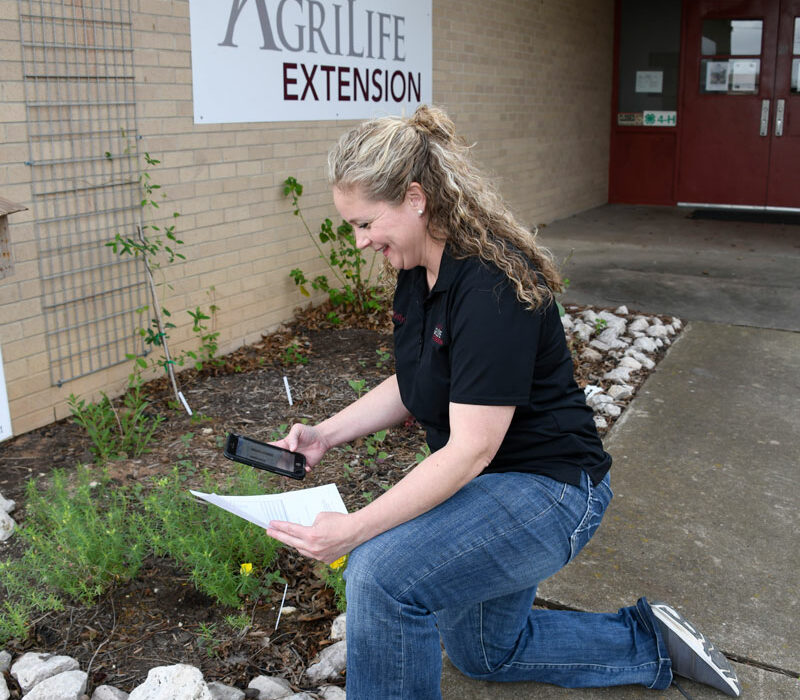
Kelly Tarla, the Texas A&M AgriLife Extension Service agent for Burnet County, uses an app on her smartphone to determine the soil type at the AgriLife office, 607 N. Vanderveer in Burnet. Photo by Mark Stracke
Better growing comes from better knowing your soil, said Kelly Tarla, the Texas A&M AgriLife Extension Service agent for Burnet County. And the best way to know is testing before you grow, especially in the Highland Lakes, where soils can differ from one spot to the next, all within a few yards.
To illustrate that point, Tarla consulted a phone app to get exact percentages on what made up the ground beneath the AgriLife office at 607 N. Vanderveer St. in Burnet.
“If we were to walk ten yards that way, we would have a whole different number,” she said. “You can be standing on three or four different soil types. There are so many combinations we could actually be standing on at any moment.”
Soil testing is quick, easy, and inexpensive, once you decide what you want to grow where, whether tomatoes along the driveway or grass in the front yard. A routine analysis will reveal how much nitrogen, phosphorus, and potassium is in the soil.
“Those three nutrients are the key nutrients for any plants, for vegetable gardens, and fruit trees,” Tarla said. “Vegetable plants need nitrogen, phosphorus, and potassium to grow and thrive. Once we know what nutrients are lacking, we can look and see which fertilizers the garden will need.”
Everything you need to know to submit a soil sample can be found online at soiltesting.tamu.edu. You can download the form and instructions for preparing a soil sample and for mailing it in. You can even prepay for the testing online.
Basically, you’ll be extracting 6-inch divots from six to eight places in the area in question, mixing it all together, taking out roots and plant life, and putting it in a heavy duty zippered plastic baggie to mail.
Soil samples also may be dropped off at the Burnet County AgriLife Extension office, where Tarla can help with any questions. She also offers assistance after you have the results, when the next step is to decide what, if any, supplements you need for your particular plot.
“Our soils here sometimes need a little change,” Tarla said. “Please call (when you get results). Let’s research it.”
jfierro@thepicayune.com











